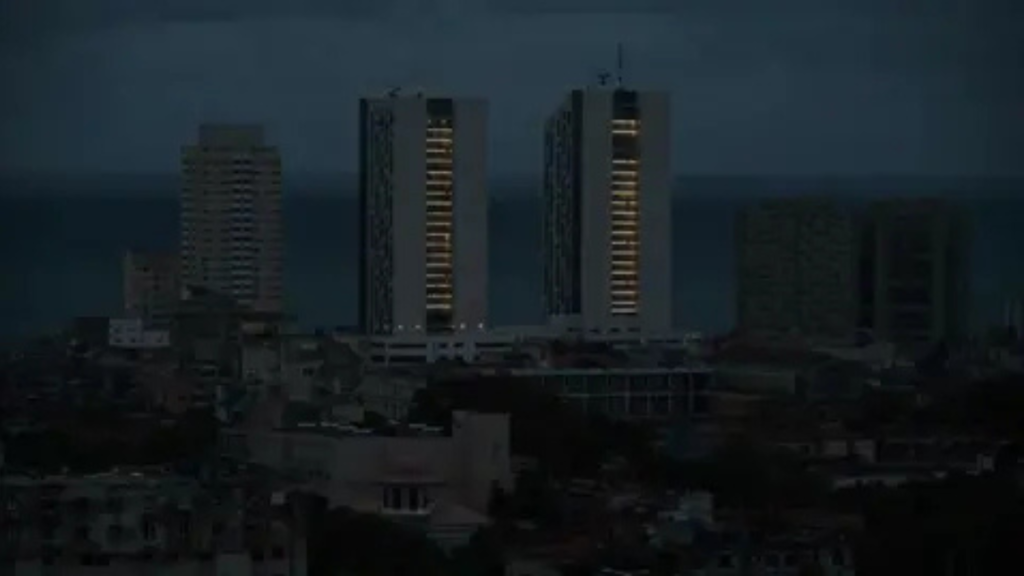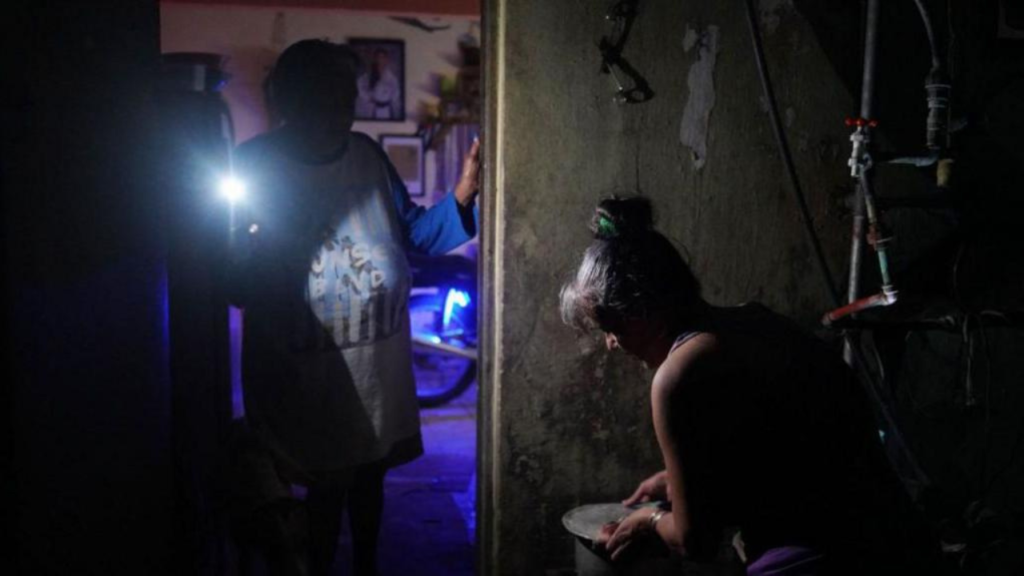
Large parts of Cuba are experiencing power outages as Category 1 Hurricane Oscar approaches from the east. On Friday, the main energy plant in the country failed, leaving 10 million people without electricity. While power was partially restored on Saturday, it collapsed again overnight.
President Miguel Diaz-Canel stated that authorities in eastern Cuba are “working hard to protect the people and economic resources” in light of the impending hurricane. With winds reaching 85 mph (140 km/h), Oscar is expected to hit Cuba on Sunday afternoon, posing risks of flash flooding and mudslides in the eastern regions, according to the US National Hurricane Center.
Hurricane Oscar is expected to make landfall near Guantanamo or Holguin, leaving many Cubans without power for several days. With no air conditioning or fans, food is starting to rot in refrigerators, and some families are resorting to cooking with firewood. The lack of electricity has also disrupted water supply, as it relies on electric pumps.
Frustration is growing among the population, particularly expressed on social media, as schools and businesses remain closed and concerns rise about the operational capacity of hospitals. There are worries that a severe storm could further damage Cuba’s already fragile energy distribution infrastructure.
The total blackout on Friday occurred when the Antonio Guiteras power plant, the largest on the island, went offline around 11:00 local time. President Díaz-Canel has stated that the situation is his “absolute priority.”
Cuban Leaders Blame US Embargo for Ongoing Power Crisis and Vow to Restore Electricity

President Miguel Díaz-Canel has vowed that “there will be no rest until power is restored,” attributing the ongoing energy crisis to the decades-long US embargo that he claims prevents essential supplies and replacement parts from reaching the country. Cuban Foreign Minister Bruno Rodríguez echoed this sentiment, stating that the damages caused by the embargo over just 18 days are equivalent to the annual cost of maintaining the national power grid. He suggested that lifting the embargo could eliminate blackouts, claiming that the US government could support the Cuban people if it chose to do so.
This year, Cuba has also faced a decline in vital fuel shipments from Venezuela. As a response to the worsening situation, Cuban officials announced the closure of all schools and non-essential activities, including nightclubs, until Monday. Non-essential workers were advised to stay home to conserve electricity, and many government services were suspended.
Residents are expressing their frustration and concern about the fragility of the electricity system. Eloy Fon, an 80-year-old pensioner in central Havana, commented on the lack of reserves, saying, “We are living day to day.” Bárbara López, a digital content creator, lamented her inability to work due to power and mobile data outages, stating, “It’s the worst I’ve seen in 47 years.”
Prime Minister Manuel Marrero recently addressed the nation, attributing Cuba’s electricity failures to deteriorating infrastructure, fuel shortages, and rising demand. He emphasized that the fuel shortage is the primary issue. Alfredo López Valdés, head of the National Electric Union, confirmed that the island is facing a difficult energy situation mainly due to these shortages.
Extended blackouts create tension in Cuba, as they can lead to public unrest, evidenced by protests in July 2021 and March 2023 over similar issues. Many Cubans are increasingly willing to voice their frustrations and even protest against the government.
Table of Contents
| Watch Now : Liam Payne Dies at 31 |



